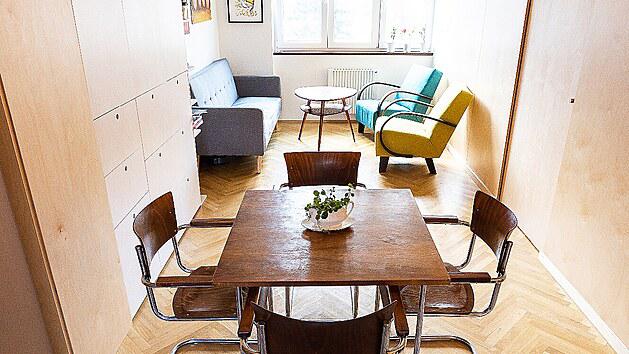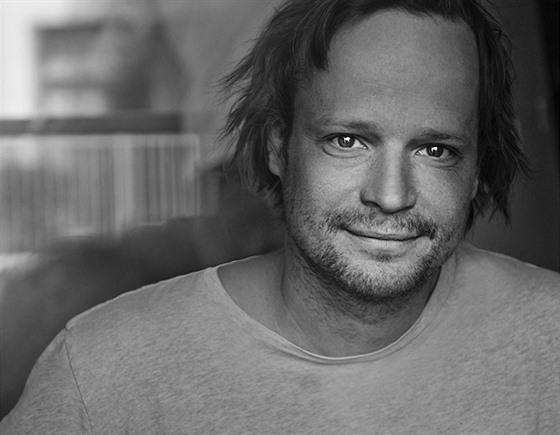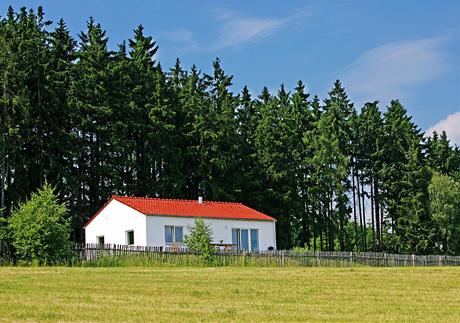As of today, the Czech Republic operates in a provisional budget regime. They have to start cutting down pandemic debts. It is not only civil servants and pensioners who have to prepare for leaner times, although not necessarily from this year. However, the inflation that will hit this year - up to ten percent this month - will cause a significant drop in the purchasing power of the population - and thus their standard of living. What else needs to be prepared for this year in the economic and financial field. Here are eight major changes and expectations for 2022.
1) "Let's tighten our belts" the most since the 90s. Wage growth is not keeping up
In the end, 2021 was not as economically unfavorable as many expected. Partly, of course, because the unfortunate economic impact of the pandemic has been postponed until 2022. The unemployment rate did not rise last year, on the contrary, it rather fell, albeit slightly - it doesn't have much room to fall, after all, it is the lowest in the EU and OECD countries.
So the year starting today will be more difficult. Especially because of inflation, not because of layoffs. Employees will probably have to tighten their belts the most since the 1990s, due to the decline in real earnings. Salaries and wages will probably grow at a rate of five to six percent this year, so they will not cover inflation, which can approach seven percent throughout the year. It may even be the year of the biggest drop in real wages – that is, wage growth minus inflation – since the 1990s.
Salaries 2022: Find out how public sector earnings will grow
MoneyPublic sector pay rises will be uneven in 2022. While the salaries of health professionals will increase by as much as six percent, employees in the civil service will receive nothing extra. This follows from the conclusions of the government meeting on Wednesday.
Golden boy
Read the article
However, the unemployment rate will remain extremely low, which is a plus for employees, but in a way a minus for employers. In a tight labor market, the employer's bargaining power vis-à-vis the employee decreases, so in some places the employee will also see a significant increase. Which, of course, will only further increase the employer's costs, which are now increasing due to general inflation - due to the increase in the prices of energy, materials, inputs, transport...
The employer will at least partly reflect its increased costs – after reducing its margin – into the final price, which will result in continued accelerating overall inflation. Although it will start to slow down from the spring, it will remain significantly above the level of the Czech National Bank's inflation target of two percent for the whole of next year.
Advertisement
>>>>>Read all about inflation here<<<<<
Although the CNB will fight against the high rate by further increasing its base rate, possibly up to the level of 4.75 percent (it is now 3.75 percent), the koruna will not strengthen much. Given that we are economically catching up with the richer EU countries either through inflation or by strengthening the currency, it is clear that if the currency does not strengthen, we are actually only catching up with them through inflation. Which is the key reason why the price in the Czech Republic is now so significant and why, after adjusting for energy, it is one of the highest in the EU - it has to "work off" all the catching up by itself.
2) Gasoline will soar above 40 crowns per liter
In 2022, there is a significant risk that fuel prices in the Czech Republic will rise to their historically record level. For the first time in history, both gasoline and diesel could be sold at an average price of 40 crowns per liter or even slightly higher.
In the last days of 2021, the price of Brent oil returned to above the level of 80 dollars per barrel. However, fuel prices in the Czech Republic have been falling for several weeks now, and they will continue to fall. By mid-January, however, the pace of discounting will gradually weaken, hand in hand, as the effect of the strengthening of the koruna against the dollar wears off. However, according to Bloomberg's model, the market does not expect the exchange rate to remain below the level of 22 crowns per dollar in the coming year. The exchange rate, on the other hand, will average 22.25 crowns per dollar and will only slightly decrease during the year to the level of 22.10 crowns per dollar.
Tax changes in 2022: mainly families with children will benefit
MoneyPeople should have more money in their pockets next year. Tax credits for the taxpayer will increase and the super gross salary or the limit on depreciation for children will also be abolished. Inflation will have a negative effect.
ČTK, sta
Read the article
Oil has been slightly more expensive recently, as concerns about the effects of the spread of the new variant of covid, omicron, are waning. However, in the first quarter of 2022, another drop in oil prices due to the effects of the spread of this variant cannot yet be ruled out. After that, however, a significant increase in global oil demand must be expected in the basic scenario. It will be more and more noticeably out of balance with the supply, which will continue to be - like this year - squeezed by the policy of the OPEC cartel and its allies led by Russia.
In addition, rapid inflation, both domestic and global, must be expected for 2022. This increases the cost of accompanying services and human labor at all levels of the chain of extraction, processing, supply and distribution of oil and oil products, including gasoline and diesel in the Czech Republic. This rapid inflation further increases the risk that the average fuel prices in the Czech Republic will attack or even exceed the level of 40 crowns per liter next year.
3) The mortgage will only be for the rich. And real estate won't get cheaper
The average domestic mortgage interest rate in November 2021, according to the latest available data from the Fincentra Hypoindex, was 2.7 percent. Compared to October, the figure jumped by 0.16 percentage points, which marks the most significant month-on-month increase in mortgage prices since January 2008. Last November, mortgages were the most expensive since June 2019. However, everything can be said that these figures are no longer valid at all - mortgages are currently still significantly more expensive than in November 2021.
Whoever starts to negotiate a mortgage now has to count on a rate of around four percent or more. In general, he can pay four to five thousand crowns more for the monthly mortgage payment than if he had taken out a mortgage for the same property this year before the holidays. At the beginning of this year, the average mortgage rate will be close to five percent and may rise to six percentages.
Inflation 10 percent? It cannot be ruled out, says CNB Governor Rusnok.
MoneyThe Central Bank will continue to increase basic interest rates in response to rising prices. However, according to Jiří Rusnok for Czech Radio, it should not exceed the five percent limit.
ČTK
Read the article
From the November statistics, it seems that interest in mortgages is not abating, which is why the key reason is that their average rate is not increasing so much yet. Both are misleading. Interest in mortgages is waning, for example by tens of percent in December 2021, as they become noticeably more expensive. Even though the volume of closed mortgages increased by more than five billion crowns in November compared to October, this is rather a manifestation of a certain inertia of the already weakening mortgage market.
The more interesting question is whether the slack will be enough to lead to a fall in real estate prices. However, the answer to this question is rather negative. Far from all real estate is purchased with a mortgage, and the supply of real estate for sale is simply still severely limited, which does not create room for a drop in real estate prices even in the event of a significant downturn in the mortgage market.
Even the tightening of conditions for the provision of mortgages by the Czech National Bank, which will take place in April 2022, will probably not be enough to reduce real estate prices. However, it is clear that the mortgage market in the Czech Republic will be unusually cold, especially in the second half of this year.
4) Pensioners will receive a double increase, the most in history
This year will probably be the most significant increase in the average pension in the entire history of the Czech Republic. Pensioners will receive an increase of approximately 1,500 crowns. First, starting today, their pension will increase by 805 crowns on average, and then they will most likely see another approximately 700 crowns in July.
Food prices are high. And producers will increase their prices by ten percent in January
MoneyThe average prices of butter, edamame and flour fell slightly in December compared to November, but they are still at multi-year highs. This results from the current results of the investigation of the average prices of selected products by the Czech Statistical Office. Basic foodstuffs in the Czech Republic have been increasing in price in recent months, with some exceptions - for example, a quart of butter has risen above 50 crowns - and thus follows the trend from abroad. And it will be the same in the new year, as inflation should reach up to seven percent.
Dušan Kütner
Read the article
The July increase is extraordinary. It will occur as part of an extraordinary valorization, which by law will most likely occur in the summer months due to rapid inflation. In this way, the law remembers pensioners, as rapid inflation weighs particularly heavily on them. In the next year, the average inflation may rise to the level of seven percent, while in the first months of the year it will be up to ten percent. Therefore, pensioners will immediately receive a double valuation, the usual January one and then the extraordinary summer one.
The average pension should increase by up to 700 crowns as part of the second, "summer" valuation, which will most likely take place in July 2022. The exact date of the increase and the amount by which the pensions will be increased are not, and cannot be, known at this time. It will also depend on the development of inflation in this and the coming months.
5) Over 5,000 crowns – every average employee with two children will improve by that much
When today every average-earning employee in the Czech Republic who has two children wakes up to a new day, he will automatically have roughly 420 crowns higher net monthly salary. It makes over 5,000 crowns a year. At the same time, this year there is no reduction in social and health insurance, nor a tax reduction. However, from the New Year 2022, tax rebates are increasing. And that's a discount for the taxpayer and also a discount for the child - from the second child upwards.
These two discounts have been increased to such an extent as of today that the average employee with two children will have the entire tax zeroed out. And he or she only pays the fees. So he will only pay 4125 crowns in levies to the state and nothing else. While only yesterday he paid the same 4125 crowns in levies and another 421 crowns in tax (which is reduced by discounts corresponding to 2021).
Companies predict four percent growth for the domestic economy. They fear high input prices
Reports from companiesThe growth of the Czech economy will reach four percent next year, wages will increase in real terms. This follows from the estimates of employers' associations. Czech companies are most concerned about the rapidly rising prices of semi-finished materials and energy, unstable supplies and the development of the pandemic.
ČTK
Read the article
From the average gross salary, which is currently 37,499 crowns, yesterday the given employee had 32,953 crowns left in net, but from today it will be 33,374 crowns, i.e. 421 crowns more per month. That is, over the 5,000 crowns per year.
From January 1, 2022, the basic tax discount per taxpayer will increase by three thousand crowns per year, from 27,840 to 30,840 crowns. This intervention will prepare the public coffers by an additional 12.5 billion crowns per year. However, the measure will come in particularly handy at a time of rapid general inflation and a decline in real earnings, which this year, as we already know, may be the most pronounced since the 1990s.
The additional loss in public budgets in the amount of the mentioned less than thirteen billion crowns, which arises from the increase in the discount, is thus a reasonable price for the fact that domestic households, especially those with low incomes, will be relieved in the next economically demanding year.
6) Interest on late payment is a record since January 1
After the pre-Christmas increase of the base rate of the CNB, as of January 1, 2022, this rate is 3.75 percent. This is important from the point of view of calculating interest on late payment. Since 2014, the amount of interest on late payment corresponds to the level of the basic rate of the CNB increased by eight percentage points. As of today, the default interest rate corresponds to 11.75 percent.
In the second half of 2021, the default interest rate was 8.5 percent and was therefore 3.25 percentage points lower than it is today. In the first half of last year, the default interest rate was only 8.25 percent. Since 2014, the default interest rate has always ranged from 8.05 to 10 percent. The rate of 11.75 percent is therefore the absolute highest. Borrowers and latecomers should expect this.
Lukáš Kovanda: Tax changes will bring people more money to fight inflation
OpinionsThe increase in the taxpayer discount will cost less than 13 billion crowns. It will also noticeably help the socially weaker, unlike the abolition of the super-gross wage.
Lukáš Kovanda
Read the article
If, for example, in the first half of 2022, a self-employed person is late in paying income tax in the amount of 300,000 crowns by a month - i.e. by 30 days - and interest for the delay will therefore be calculated for 27 days (the first three days of the delay interest on late payment is not applied), the amount of interest on late payment will correspond to 2608 crowns. Last year in the first half of the year, it would have been only 1,831 crowns, i.e. 777 crowns less.
7) Lending to the Czech government will safely protect against inflation
Until December 23, 2021, people had the opportunity to subscribe to the latest issue of savings government bonds, Dluhopysy Republiky. In their anti-inflation variant, they represent one of the best safe ways to protect savings against inflation this year. People who bought the Republic Bond in the period before Christmas 2020, for example as a gift under the tree, as recommended by the then Minister of Finance Alena Schillerová, received an interest rate of almost 6.3 percent last year. At the same time, the best interest-bearing bank savings accounts in the Czech Republic now show an interest rate of around three percent. In addition, the yield on Republika Bonds is exempt from tax due to the pandemic.
The interest on the anti-inflation Bonds of the Republic, which could be subscribed last year until December 23, will most likely be around six percent this year. Considering that the CNB is now announcing an even more significant increase in inflation, and thus also in its basic interest rate, than before, the interest rate on the Republika Bond next year may be even higher than six percent. People definitely should not have given up on such lending to Fial's cabinet, especially if they are among those who do not like to take risks with their money.
8) N flat tax is a few days. The interest will probably not be widespread
Self-employed persons (OSVČ), i.e. self-employed persons, have the last few days to register for the flat-rate tax regime. A flat tax means that the self-employed will reduce the time they have to spend on "paperwork". One flat tax - and one regular monthly payment - replaces both the tax itself and the social and health insurance premiums. In addition, there is no need to file a tax return.
It is important that those self-employed persons who can and wish to enter the flat-rate tax regime must notify the relevant tax authority of this fact no later than January 10, 2022. If this deadline is missed, the situation cannot be reversed and the self-employed person concerned must enter the flat-rate taxes to wait until 2023.
The flat tax is a flop. And because of inflation, it will probably remain so
OpinionsPeople have the last two weeks to enter the flat tax regime. This year, interest in it fell short of expectations, which is likely to be repeated next year as well due to rapid inflation.
Lukáš Kovanda
Read the article
For this year, the flat-rate tax is 5,994 crowns per month, i.e. 71,928 crowns for the whole year. The flat-rate tax consists of the minimum levy for health insurance (2,627 crowns), a 15 percent increase in the minimum levy for social insurance (3,267 crowns) and personal income tax in the same amount as this year – 100 crowns.
A taxpayer who decides to enter the flat-rate tax regime, however, loses the possibility, for example, to apply a taxpayer discount, a spouse discount, or a disability discount. He also cannot claim interest from mortgages or contributions to life or pension insurance and others. Each self-employed person must therefore carefully calculate whether the flat-rate tax regime is worth it.
In total, according to estimates, the flat-rate tax should have been paid to roughly 140,000 taxpayers, in the end only a little over 70,000 self-employed persons signed up for the scheme last year. The flat tax is far from being worth it to everyone. The main reason is that it only applies to non-VAT payers, i.e. self-employed persons whose annual turnover is less than one million crowns. Also due to the current rapid inflation, the fastest since 2008, the limit established in this way, which is already relatively low, represents an increasingly fundamental obstacle to entering the regime. However, if the Czech Republic were to obtain an exception from the EU to increase the annual turnover limit, for example to two million crowns, the range of self-employed persons using the flat tax regime could increase to the level of 200,000.
The flat-rate tax, for example, does not pay off to craftsmen or farmers who use an eighty percent flat-rate tax. Of those self-employed who apply the 60 percent flat rate, the flat tax is mainly paid to those with higher incomes (not exceeding the million limit, of course), who at the same time do not have children or a wife. Literally, the "term" can be a flat tax for many self-employed persons, or self-employed persons who apply a forty percent flat rate (e.g. authors of texts, etc.).
The author is the chief economist of Trinity Bank and a member of the Government's National Economic Council (NERV)








